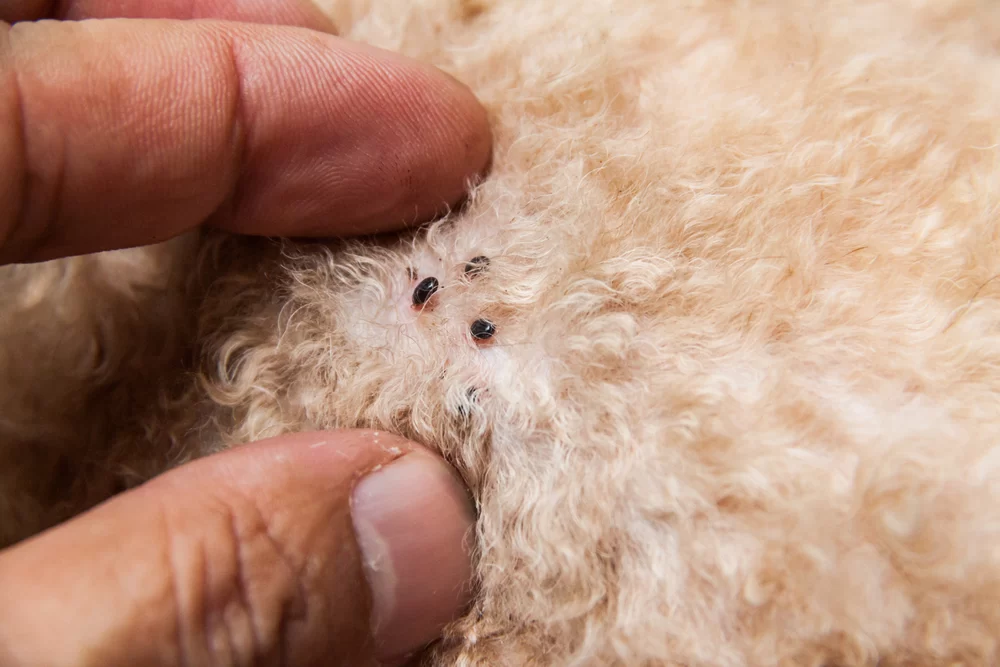Recognizing the Signs of Parasites in Pets: A Guide for Pet Owners
As a pet owner, one of the most important responsibilities we have is keeping our pets healthy and comfortable. Over the years, I've learned that there are many unseen threats to my pets' well-being, one of the most common being parasites. When I first got my dog, Charlie, I was blissfully unaware of the many parasites that could be lurking on or inside my pet. It wasn't until I started noticing some odd behaviors that I realized something was wrong. From itching to digestive issues, parasites can present a wide variety of symptoms in pets. Let’s take a deep dive into the common signs of parasites and how you can protect your pet from these pesky invaders.
1. Excessive Scratching and Itching
One of the most noticeable signs of parasites in pets, especially dogs and cats, is excessive scratching or itching. I remember when Charlie started scratching behind his ears incessantly. I initially thought it was just dry skin, but soon enough, I discovered that he had fleas. Fleas are a common external parasite that can cause severe itching, and if left untreated, they can lead to skin infections. If your pet is constantly scratching, biting, or licking certain areas of their body, it’s a good idea to check for fleas, ticks, or other skin parasites.
2. Unexplained Weight Loss
Another red flag that I learned to watch out for in my pets is unexplained weight loss. This can be especially concerning if your pet has a healthy appetite and isn't showing signs of illness. Some internal parasites, like tapeworms, hookworms, or roundworms, can rob your pet of the nutrients they need, leading to weight loss. I had no idea that Charlie’s sudden weight loss was due to worms until my vet discovered them during a routine check-up. If you notice that your pet is losing weight despite eating well, a parasite infection could be the culprit.
3. Vomiting and Diarrhea
Parasites can also wreak havoc on your pet's digestive system. I vividly remember the first time Charlie started vomiting after meals. It turned out he had ingested a parasite while playing outside. Vomiting and diarrhea can be symptoms of a wide range of parasites, including Giardia, roundworms, or whipworms. These symptoms often come and go, but if they persist, it’s important to take your pet to the vet for a fecal exam. It was through a simple stool sample that we were able to determine the exact cause of Charlie’s gastrointestinal issues.
4. Change in Coat Condition
A pet's coat is often a reflection of their overall health, and changes in the quality of their fur can indicate a parasite problem. For instance, when my dog, Bella, started losing patches of fur around her tail, I didn’t initially make the connection to parasites. However, after a closer look, I noticed that she had developed a severe flea infestation. Fleas can cause hair loss, skin irritation, and a dull coat due to the constant scratching and biting. If your pet’s fur seems unhealthy or they're shedding more than usual, it’s worth checking for parasites.
5. Scooting or Dragging Their Bottom
One sign that might seem odd at first is scooting or dragging their bottom along the floor. While it might look a bit funny, this behavior is actually a sign that your pet might be dealing with worms, particularly tapeworms. Tapeworm segments, which resemble small grains of rice, can often be seen around your pet’s anus or in their feces. If your pet is scooting or excessively licking their bottom area, it’s essential to get them checked for worms. I had no idea how common this was until I saw it firsthand with Bella. A quick visit to the vet confirmed the presence of tapeworms, and after some medication, she was back to her usual self.
6. Lethargy and Weakness
If your pet is usually active and energetic but suddenly becomes lethargic, it could be a sign of a parasitic infection. I once noticed that Charlie was less interested in his walks, and his energy levels seemed to dip for no apparent reason. After a veterinary examination, it turned out that Charlie was suffering from a severe hookworm infection. Parasites can cause anemia, which leads to fatigue, weakness, and a lack of interest in activities they once enjoyed. If you notice that your pet seems unusually tired or disinterested in playing, it’s time to consult with your vet.
7. Visible Parasites on Their Skin or Coat
Sometimes, you don’t need to wait for symptoms like itching or vomiting to appear. In some cases, parasites can be visible on your pet’s skin or coat. Fleas, ticks, and mites are examples of external parasites that are often easy to spot if you know where to look. I found my first tick on Charlie after a hike in the woods, and it was a learning experience. Ticks can attach themselves to your pet’s skin and remain there for a long time, so regular checks, especially after outdoor adventures, are crucial. You can also spot fleas by looking for small black specks (feces) on your pet's fur, which is an indication of an infestation.
8. Changes in Appetite
Changes in appetite, whether it’s eating too much or too little, can be a sign of parasites. Some pets with parasites may have an increased appetite because the worms or other parasites are consuming the nutrients that your pet is ingesting. On the other hand, some parasites can cause your pet to lose their appetite due to nausea or stomach discomfort. For example, after Bella's flea infestation, her appetite decreased significantly as she became more focused on scratching and feeling uncomfortable. Keeping an eye on your pet’s eating habits can help detect potential issues early.
9. Coughing or Respiratory Issues
Although less common, certain parasites, such as heartworms, can affect your pet’s respiratory system. These parasites can cause symptoms like coughing, wheezing, or difficulty breathing. I had no idea that Charlie’s occasional cough could be linked to heartworms until my vet explained it to me. If your pet starts coughing persistently, especially if they are also lethargic or have trouble breathing, it’s essential to see a vet as soon as possible.
10. Preventing Parasites in Your Pets
While it’s important to recognize the signs of parasites in your pets, it’s equally crucial to take preventive measures. Regular vet check-ups, flea and tick treatments, and deworming medications are all essential in keeping parasites at bay. I learned early on that preventing parasites is far easier than treating them. Be sure to follow your vet’s recommendations for parasite prevention based on your pet's lifestyle and environment. For instance, if your dog frequently spends time outdoors or in wooded areas, you’ll need to be especially vigilant about flea and tick prevention.












